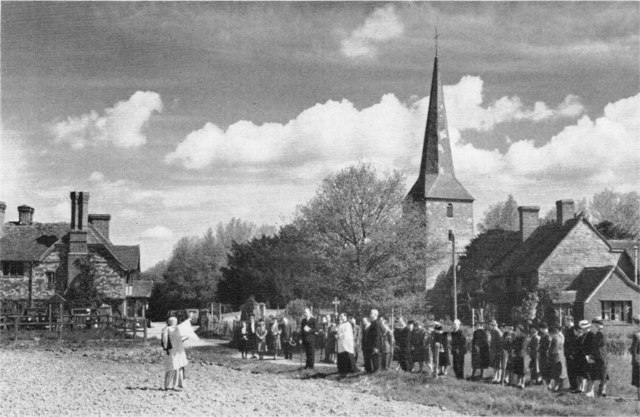|
So, what is Rogation Sunday, and Rogationtide (a.k.a., the Rogation Days), anyway…? The lovely Anglican blog, “Full Homely Divinity,“ explains:
“The week of the Sixth Sunday of Easter [note: for those of us using the traditional calendar, as found in The Book of Common Prayer 1928, referred to as the Fifth Sunday after Easter] is busy with processions and outdoor activities. The week begins with prayers and celebrations that focus on stewardship of creation and culminates in the great (but lately much-neglected) Feast of the Ascension of our Lord into heaven on the fortieth day of the Paschal Feast.
“The Rogation Days, the Monday, Tuesday, and Wednesday before Ascension Day, originated in Vienne, France (not Vienna, Austria), in 470 after a series of natural disasters had caused much suffering among the people. Archbishop Mamertus proclaimed a fast and ordered that special litanies and prayers be said as the population processed around their fields, asking God’s protection and blessing on the crops that were just beginning to sprout.
“The Latin word rogare means ‘to ask,’ thus these were ‘rogation’ processions. In an agricultural society, closely connected with the soil and highly vulnerable to the uncertainties of nature, this was an idea that took root quickly, and the custom spread around Europe and over to Britain. The Sunday before the Rogation Days came to be considered a part of Rogationtide (or ‘Rogantide’) and was known as Rogation Sunday.”
Thus, the blessing of crops, and from that, a more general sense of exercising good, due, and proper stewardship of Creation, is an important part of this day, and this Tide.
Furthermore, there developed in England the concept of “the beating of the bounds,” in which the Rogation Procession made its way around the bounds of the parish, reaffirming a sense of place, and instructing the young in the geography of home, and significant locations, sites, and features within those bounds. Because those boundaries were sometimes transgressed, it also provided an opportunity to reconcile with one’s erring neighbors.
Another excellent blog, “The Homely Hours,” notes,
George Herbert gave the following reasons to observe the Rogation Days, that are still practical for us today: 1) [asking] a blessing of God for the fruits of the field; 2) Justice in the preservation of the bounds; 3) Charitie [sic], in living, walking and neighbourliy [sic] accompanying one another, with reconciling of differences at that time, if they be any; 4) Mercie [sic], in relieving the poor by a liberal distribution of largess which at that time is or oght be made.”
The author of that blog, Amanda, further recounts, “I remember the first time I participated in our church’s Rogation Day ‘Beating of the Bounds.’ I was deeply impressed by the way that the Rogation Days took seriously the life of the body in the world.”
So should we all!
(This is but a synopsis – for a fuller treatment, I’ll be preaching on the topic on Sunday! If you are able, please join us in person at 750 Fairway Drive, Southern Pines, NC, or take advantage of the wonders of modern technology by joining us “virtually” for our live-stream on YouTube: here’s the link for the Christ Church Anglican YouTube channel!)
May the good Lord bless you and keep you, through the remainder of this week and always!
Faithfully yours in Christ,
Fr. Tom Harbold
|


